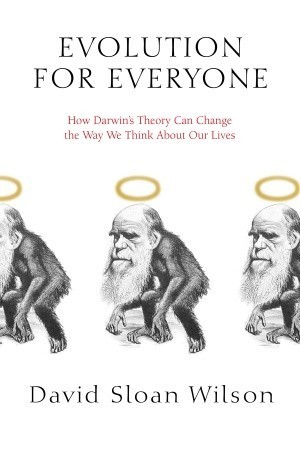
Unto Others: The Evolution and Psychology of Unselfish Behavior
Book Description
What drives a person to act unselfishly in a world often ruled by self-interest? "Unto Others" dives into the profound depths of human behavior, unraveling the intricate tapestry of evolution and psychology that shapes our capacity for altruism. Through riveting insights and compelling arguments, Sober reveals how cooperation and kindness have been woven into the fabric of human survival. As morality clashes with instinct, the dance between selfishness and selflessness takes center stage, prompting a crucial question: Can unselfish behavior truly thrive in a society defined by competition, or is it just a fleeting illusion?
Quick Book Summary
"Unto Others: The Evolution and Psychology of Unselfish Behavior" by Elliott Sober examines the origins and mechanisms of altruism, challenging the notion that all behavior is fundamentally self-interested. Drawing from evolutionary biology, psychology, and philosophy, the book explores how unselfish behavior can arise and persist in a world seemingly dominated by natural selection's emphasis on survival of the fittest. Sober and co-author David Sloan Wilson demonstrate that altruism—acts benefiting others at a cost to oneself—can be understood through group selection and nuanced psychological processes. The book addresses questions of whether kindness, cooperation, and moral behaviors are evolutionarily viable, and how they manifest in human societies. Ultimately, "Unto Others" offers a rigorous investigation of the biological and psychological roots of unselfishness, revealing its essential role in both evolutionary success and ethical philosophy.
Summary of Key Ideas
Table of Contents
Mechanisms of Altruism in Evolution
Sober begins by dissecting the biological underpinnings of altruism. He differentiates between behaviors that appear unselfish and those that truly reduce an individual's fitness to benefit others. Drawing on examples from the animal kingdom, the book critiques the traditional view that natural selection inevitably favors selfishness. Through this analysis, the authors argue that altruism, defined as a sacrifice for another's benefit, is both real and significant in the natural world, not just a misinterpretation of subtle self-interest.
Group Selection and Individual Selection
A central theme is the debate between group selection and individual selection as mechanisms that drive the evolution of altruism. While classical evolutionary theory emphasizes that genes promoting selfish behavior spread more effectively, Sober and Wilson make the case for group selection—whereby cooperative groups outcompete less cohesive ones. They argue that under certain conditions, selection operates at the level of groups, making altruistic behaviors advantageous for the survival and reproduction of those groups, and thus favored by evolution.
Psychological Foundations of Unselfish Behavior
Psychologically, the book explores whether humans perform unselfish acts exclusively for hidden personal rewards, such as reputational gains, or whether genuine concern for others is possible. By weaving together findings from psychology and philosophy, Sober challenges the idea that all motivations are inherently selfish. The authors introduce concepts like empathy and intrinsic motivation, presenting evidence for psychological mechanisms that support authentic altruism, separate from self-serving incentives.
The Interplay of Self-Interest and Morality
The interplay between self-interest and morality is analyzed by considering how cultural norms and social expectations influence behavior. Sober explores how evolutionary and psychological pressures intersect to shape contemporary moral practices. Through the lens of moral philosophy and cognitive psychology, the book addresses how humans balance personal interests with collective well-being, and how moral systems may have evolved to promote cooperation and discourage pure self-interest for the group's benefit.
Implications for Human Society and Ethics
Finally, "Unto Others" discusses the broader implications for ethics and society. Sober considers what these evolutionary and psychological discoveries mean for our understanding of human nature and moral responsibility. If altruism can evolve and persist, then ethical systems built on cooperation and empathy may have a natural foundation. The book concludes by situating unselfish behavior at the heart of both human social structure and moral philosophy, challenging the primacy of competition as the sole driver of evolution and societal progress.
Download This Summary
Get a free PDF of this summary instantly — no email required.





